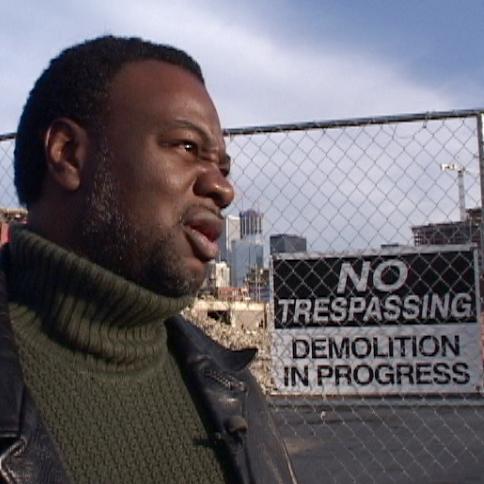Meet New Day: Ronit Bezalel

My film 70 Acres in Chicago: Cabrini Green chronicles the fifteen-year demolition of Chicago's Cabrini Green public housing complex, the subsequent building of mixed-income replacement homes, and the erasure of an African-American community.
Cabrini Green was situated on some of the city’s most valuable real estate and was ultimately deemed by land developers to be too valuable for the low-income black community that lived there. The film grapples with questions of urban planning, gentrification, and who has a right to the city. When I arrived in Chicago in 1994 to study film at Columbia College, I was dismayed by the city’s racial divide. As a white woman, I was immediately told to avoid Cabrini Green, a low-income black community next to the city center. I wanted to understand why Chicago was so segregated, and why Cabrini Green was being torn down. People told me this was a land grab, and I sensed that there was a story that needed to be told. I contacted people at Cabrini Green and began learning about the community. I was introduced to Cabrini resident/activist Mark Pratt who was also a film student at Columbia College. We struck up a friendship that has endured over 20 years.

I originally made a short film called Voices of Cabrini that looked at the initial demolitions. I continued to film for 15 additional years to follow the story through to completion and created 70 Acres in Chicago. While making both films, I tried to stay aware and humble. So many people want to fully "understand" Cabrini Green, and as outsiders we cannot. My role was to learn, listen, and help people share their stories. I cannot claim to "know" Cabrini, but I did my best to create a historical record of a community that no longer exists in the same way. 70 Acres in Chicago has proven a vital instructional tool for urban planners, city officials, and students who are trying to avoid the pitfalls of Chicago's Plan for Housing Transformation. It has also served as an important catalyst for dialogue on issues of race and class. While the film focuses on Chicago, it has national resonance. Across the United States, communities of color are being disproportionately pushed outside of city centers because the land where they live has become too valuable in the real estate market. Learn more about Ronit and her work.